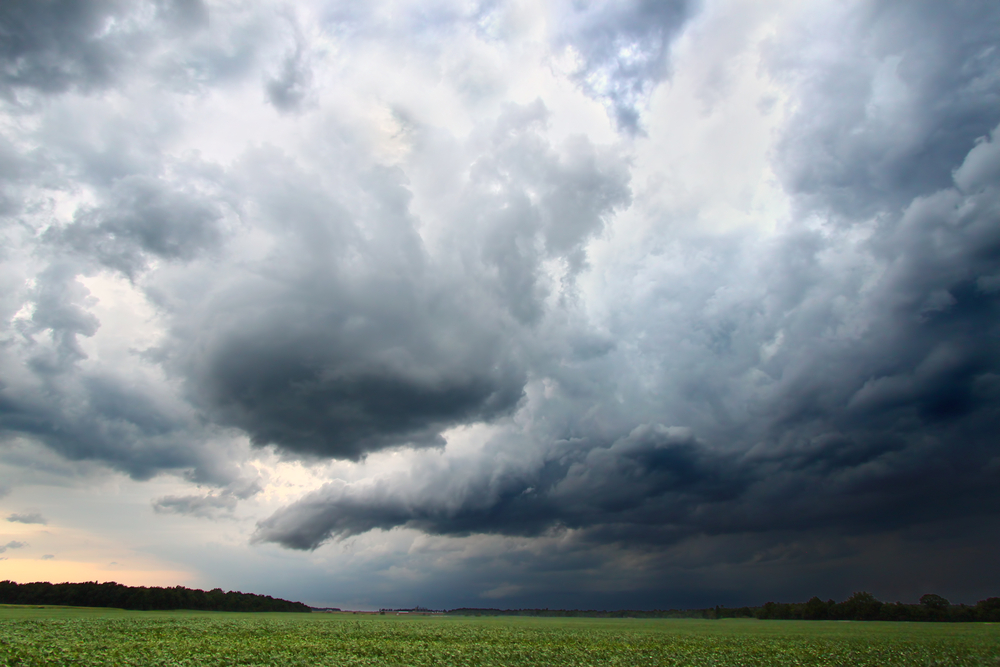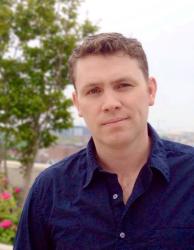In a cultural landscape that is often hostile—or at best indifferent—to religion, a popular and widely lauded novel whose plot focuses not only on matters of faith but also a main character whose worldview and identity is shaped entirely by his Catholicism is a rare occurrence. Randy Boyagoda, perhaps best known for his biography of First Things founder and prolific author Richard John Neuhaus, has written just such a novel. Dante’s Indiana is a superb literary achievement, and one with no small amount of humor, that Catholics and non-Catholics alike should pick up at the earliest opportunity.
The novel centers on Prin, a Toronto professor whose academic focus is the representative use of marine life in Canadian literature—a suitably esoteric specialty for a character that consistently finds himself in comically (and occasionally not so comically) bizarre circumstances. Prin is a solid family man, devoted to his wife and daughters, but experiencing marital difficulties owing to some events that occurred near the end of a preceding novel, Original Prin. (The story arc is planned as a trilogy, with the last installment yet to be published.)
These same events also lead to Prin’s unusual state of employment at the beginning of the second book, as a pensioned (at age 41) lecturer at a defunct college that’s been converted into a sort of active-seniors living facility (really). Prin’s quarters are included in the seniors’ complex while his own house is (too) slowly renovated and his wife and four daughters stay in Wisconsin with his in-laws, this arrangement owing both to the renovations and the aforementioned marital stresses that started in the last novel.
Needing additional money to expedite the renovations and reunite with his family, Prin accepts a bizarre offer from a young, techno-babble-spouting wannabe-influencer named Kyle (who winds up being one of the book’s more enjoyable characters). This job initially involves Prin’s traveling to Indiana to deliver lectures at sparsely attended community events on the topic of Dante. It’s an odd investment for the funders to make—$500 per speech at suburban Indianan public libraries and schools—but turns out to be about much more. A retired industrialist named Charlie Tracker has a grander vision for spreading the message of Dante in Indiana, and it’s a vision into which Prin is duly pulled.
Charlie’s idea, a theme park based on the Divine Comedy, is to be located in, of all places, the run-down small city of Terre Haute (in the book’s description, “downtown Terre-Haute looked like the mouth of a retired hockey player”). Prin is enlisted as a kind of go-between for Charlie and his son Hugh, who has taken over the family business, a packaging company, and is trying to navigate it through a changing economic landscape, with less of the common touch than his father had. Prin also serves as a go-between for the amusement park’s project team and the comically particular academic consultants who have been brought in to make sure the facility is sufficiently faithful to Dante’s vision (some cultural grant funding for the project is contingent upon this qualified academic approval). The team Prin joins includes a motivated young business school grad who certainly belongs more to New York City or Silicon Valley than to the down-on-its-luck Midwest (she’s something of a do-gooder with local roots) and a pair of nearly retired former packaging-industry pros who give much of the proceedings their heart.
The park itself is being installed in two adjacent, abandoned basketball stadiums (one slated to be the Inferno, the other Paradiso), but the packaging company’s troubles, the interpersonal struggles of the characters, and the opioid-fueled blight of greater Terre Haute all present plenty of challenges for Prin and the project team. Along the way, the book provides observations on drug addiction, fathers and sons, marriage, evangelical zeal, retirement, death, love, mistakes, and social decline in Middle America, all couched within a Canadian’s view of the U.S.
There is an undoubted religious subtext to the narrative in all its particulars, despite the amusement park premise. Prin himself is devout, going to confession multiple times across the two books of the series, sometimes to confess mere thoughts. He is indeed imperfect, but through persistent basic decency remains a wholly likable and reliable narrator. The result is that, as the plot unfolds, the reader becomes aware of and invested in not only Prin’s internal struggles and longings but also the outward manifestations thereof, as well as the outward manifestations of others’ struggles and longings, in a world that cannot but be broken for them. There is of course a parallel here to the developing theme park: Everyone’s internal battles and shortcomings shape a society that orients the collective toward heaven or hell (or, to varying degrees, both at the same time). Often in Dante’s Indiana, in fact, it is the characters’ divergences in their relative perceptions of the Good that causes friction and conflict, bringing forth some feeling or some piece of hell instead.
Perhaps that is the nature of being fallen, but acknowledging differing understandings of the Good can only mean that there is, in fact, a good to which we all aspire in one way or another. Prin, and many others in this novel, holds on to that aspiration, bringing forth some feeling or some piece of that heaven. The park, then, provides an ever-present metaphor that frames the proceedings of the book. Ultimately, though, that metaphor and everything else about this novel leave the reader with an unquestionably direct message: Heaven and hell are real, and that fact has significance for how we live here on earth now, whether in New York City, Silicon Valley, or Terre Haute, Indiana.

